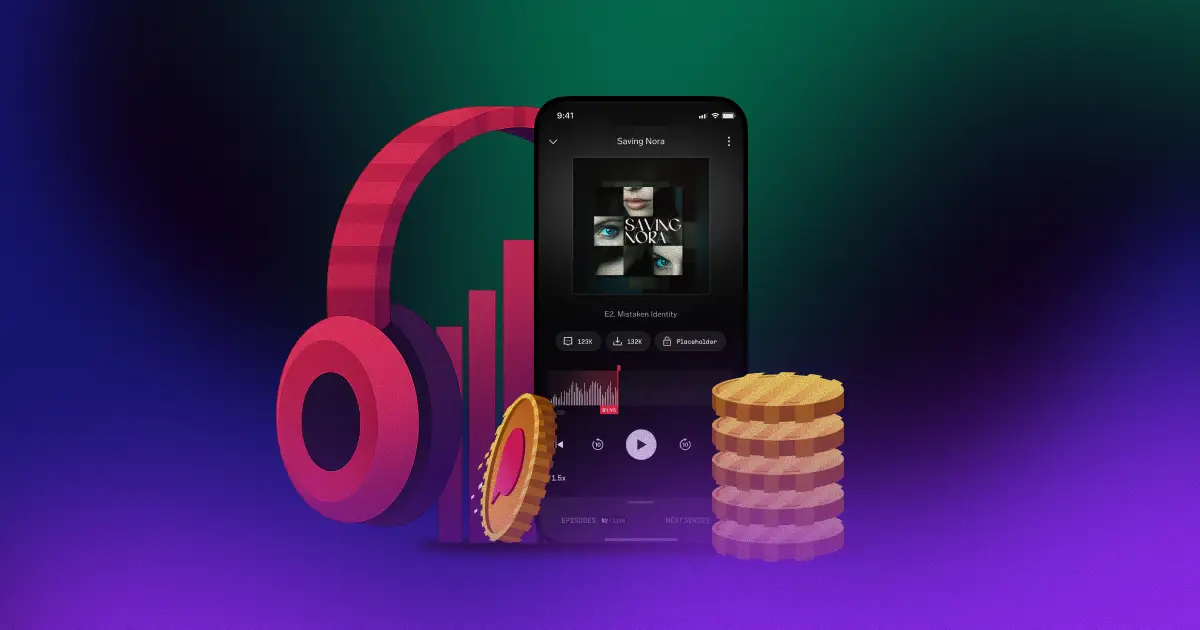
Is the Audio Platform Monetization Playbook Ready for a Major Overhaul?
In an age where digital platforms are the primary source of entertainment, the race for attention is more intense than ever. But as we progress, it’s clear that the battle isn’t just about capturing attention anymore, it’s about how smartly that attention is monetized. Content platforms across the globe are shifting from traditional revenue models to adaptive, data-driven strategies powered by AI and consumer behavior insights.
Video Platforms: Leading the Charge in Monetization Innovation
Let’s take a step back and look at the most successful examples of this transformation. Video platforms such as Netflix have been at the forefront, redefining content monetization. With over $37 billion in 2024 revenue, Netflix now generates nearly $1 billion annually from its ad-supported tier, signaling a strategic pivot from its previous subscription-only model. Hulu, leveraging its dual monetization strategy, has built a thriving ad-supported ecosystem, contributing to roughly 60% of its revenue from ads. Amazon Prime Video, blending OTT services with e-commerce, has created a flywheel effect worth billions of dollars, contributing to Amazon’s broader business success.
The Rise of Audio Monetization
Audio platforms are riding a similar wave of innovation. Spotify, with over 602 million users and 236 million premium subscribers, saw its ad revenue account for 13% of its €3.7B in annual revenue. However, its investment in podcasts and audiobooks is where the real magic lies—diversifying revenue streams while maintaining user engagement without causing friction. This shift is not only creating new opportunities but also setting a new standard for user-centric content monetization.
Perhaps the most exciting development is YouTube, the ultimate content marketplace. With $40 billion in annual revenue, ad sales remain its backbone. But the real story here is the rapid growth of YouTube Premium, which crossed 100 million subscribers in early 2024, revealing an undeniable shift in consumer preferences for ad-free, immersive content experiences.
Pocket FM: Shaping the Future of Audio Monetization
In this evolving environment, Pocket FM is stepping into the spotlight, reshaping audio monetization in high-growth, mobile-first markets like India, USA and more markets in Europe and LATAM. The platform has experienced impressive growth, with a 6X revenue increase YoY in FY24 and over 200 million user community, consuming serialized audio stories in genres ranging from romance to thrillers and fantasy. But what truly sets Pocket FM apart is its innovative monetization model. Users unlock episodes using virtual coins in a gamified system, blending the best aspects of casual gaming with entertainment. Today, 90% of Pocket FM’s revenue comes from user payments, while the remaining share is derived from programmatic and branded content ads, while this share is increasing.
The Power of Adaptive Monetization Models
What unites these industry giants is their shift away from static monetization models, such as traditional banner ads or one-time purchases, towards dynamic, adaptive strategies that respond to user behavior and intent. Machine learning now powers these strategies, allowing platforms to optimize ad loads, personalize upsells, and tailor content bundles in real-time. Success is no longer defined by user numbers alone, but by how well platforms understand user preferences, what they are willing to pay for, when they will pay, and how they engage with content.
Balancing User Experience and Economic Viability
The future of monetization in entertainment will rely on striking a delicate balance between user experience and economic viability. Monetization is no longer an afterthought or an add-on; it has become a key feature of the content itself. Platforms that can merge these two elements intelligently will not only thrive, they will define the next generation of consumer internet.
As the entertainment landscape continues to evolve, the focus will be on building scalable, sustainable revenue models that prioritize the user experience while also empowering creators with reliable income streams. Those who can navigate this changing environment with agility and foresight will lead the charge in shaping the future of entertainment.